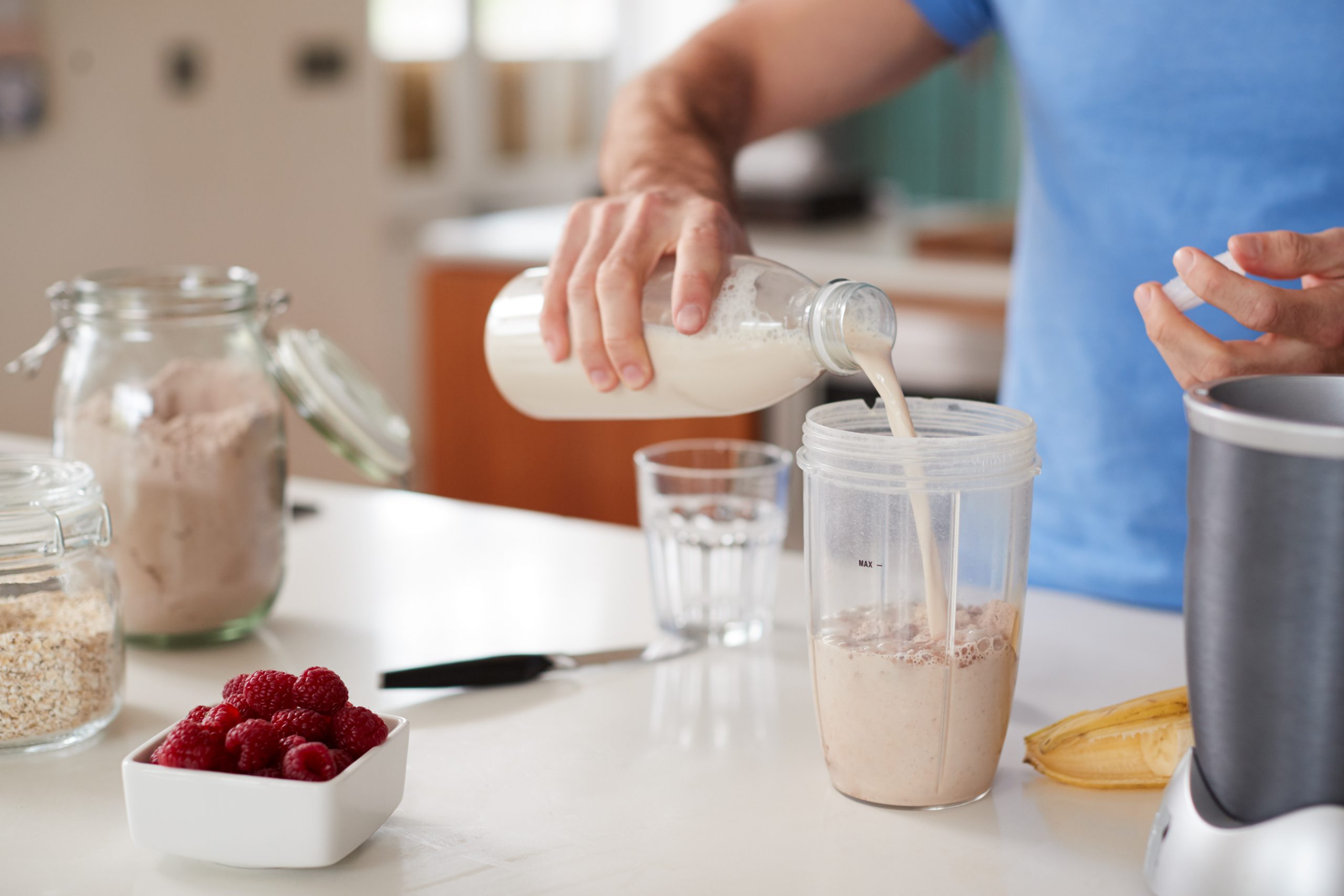
Protein is widely known for its role in muscle contraction and development, two things that are of utmost importance for athletes.
As a general recommendation, endurance athletes require 1.2-1.4g/kg (grams of protein per kilogram of body weight) and strength/power athletes require 1.2-1.7g/kg for performance nutrition. For a 200-lb. athlete, that equates to 110-155 grams of protein per day. Remember that every body and every athlete are different, so it’s best to work with a sports registered dietitian for specific and individualized nutrition coaching.
Types of protein for performance
While meat, fish, nuts, dairy, and beans are all good sources of protein, it’s important to note that not all proteins are created equal. Proteins contain amino acids, or small organic compounds, that when put together create a complete protein. There are 20 amino acids, nine of which are essential. Our body cannot synthesize essential amino acids, making them “essential” in our diet. Even more specifically, three of the essential amino acids are better known as branched chain amino acids: leucine, isoleucine, and valine. Research indicates that increased intake of branched chain amino acids may increase muscle protein synthesis, decrease muscle soreness, reduce exercise fatigue, and prevent muscle wasting.
Rather than focusing on amino acid intake, consider the biological value, or the digestibility and absorbability, of a protein. Foods that have high biological value protein include eggs, milk, fish, beef, and chicken. Note: Animal-based proteins usually have higher biological value than plant-based proteins. This is because animal-based proteins contain all the essential amino acids to “complete” the protein. Plant-based foods require a pairing of another food item to ensure all essential amino acids are present to “complete” the protein. For example, brown rice and black beans together create a complete protein.
Recap: Of the 20 amino acids, 9 are essential amino acids. Of the 9 essential amino acids, 3 are branched chain amino acids.
Timing of protein is key
Research shows muscle protein synthesis is 25% higher when protein is steadily and consistently eaten throughout the day, versus a “warrior” style of eating with a single heavy-protein dinner. Athletes of all levels require a mixture of carbohydrates, protein, fat, and fiber at every meal to fuel their body, life, and sport. The Accel performance registered dietitian recommends building a performance plate based on where an athlete is in their training year. Aim to eat every 3-4 hours with meals spaced evenly and snacks in-between. Remember that an athlete’s nutrient and energy needs can vary greatly, and that working one-on-one with a registered dietitian can maximize your training and performance.

Recent Comments